I’m back! After months back and forth on the road and several weeks cramped into too-small hotel suite with our family of 9 (plus a dog!), we finally closed on our new house, and are settling in. I have had no headspace to write since August, save for a few boozy jaunts on Twitter, making provocative statements about ontology, but I have a desk and a real computer again, so you’ll be seeing a lot more of me.
Just a reminder: if you haven’t done so yet, please subscribe so you don’t miss any future posts!
ALSO: This post is a long one, and better read in your browser than your email!
Thinking about it now, although it had been brewing for some time, my liminal state began in earnest on May 25th, 2021. That was the day I abruptly changed course and declared to the world that I would no longer be playing by the rules that had governed my life for the previous 43 years. Did I know what that actually meant? No. And I’m still working on that. But the sense that it was a bridge burning behind me with no way back was palpable.
Within a month, I had a proposal from another Catholic publisher to take over OnePeterFive, the online publication I’d been building since 2014 into one of the most influential platforms in the Catholic media space. Although the terms of the transition were suboptimal, I knew I needed out, that in fact I was at least three years overdue, and so, I made sure it was a done deal by the first of August.
And from the moment my hands were off the 1P5 wheel until now, it’s been a non-stop sprint through an obstacle course of full-tilt transition.
I am finally in a place, physically more than mentally, where I have some room to think. And so, this morning, the familiar feeling of pattern recognition returned, rather unexpectedly, and began to coalesce into sentences that needed to be written down. As thoughts caromed involuntarily around in my head, weaving subtle patterns in my consciousness, I became aware that the old, familiar muse was at long last plying her arts of creative seduction on me. Notably, the word “liminality” floated up on the sea foam of neural churn. Thing was, I couldn’t remember what it meant — only that I was pretty sure it was a term William Gibson liked to deploy in his cyberpunk novels. So I did what any quasi-decent writer would do, and looked it up:
What is a liminal space? What are liminal feelings? To grasp the real meaning of these terms, we look to the origin of the word “liminal.” Derived from the Latin word ‘limen,’ meaning threshold, “liminal” indicates a place or point of entrance or beginning. By definition, a liminal space is a time between ‘what is’ and the ‘next.’ It is a place of transition, not knowing, and a season of waiting. It’s a common or shared space that might make one feel uneasy or a feeling of something being “off,” but one can’t quite pinpoint what or why that is. It can also be the uncertainty in your future created by a significant change.
To sum it up: liminal feelings are feelings of tension and unease created by a physical liminal space or considerable change. Liminal feelings are created by significant changes, like a change in job or moving to a new town. These changes make your future seem uncertain. At this point, you know where you are physically, but mentally, you don’t know where you are as a person.
Yeah. I thought. That’s exactly it.
Weird how a word you can’t even remember the definition of can slip unsolicited into your stream of consciousness to demand attention, and yet so perfectly describe what you’re going through.
As I sit down to write this, I do it from the not-fully-set-up attic-office of my new home in New Hampshire, nearly 3,000 miles away from the Arizona desert where I’ve lived and worked for the past five years.
The past few months have been a blur of near-constant change: getting 1P5 off my plate, working with my wife to orchestrate the necessary repairs and upgrades to our home to get it ready for sale, taking the long road trip to New England where we both felt, at first independently of each other, then in unison, a strange sense of of possibility in gaining a fresh start, and ultimately identifying and purchasing a new home in a state I haven’t even visited since I was a child. I’ve driven across the country three times in two months, but I finally landed somewhere different.
And now I have to deal with that.
It was a strange process, and the peculiarity of it hasn’t diminished much even now, as I type this, surrounded by a sea of boxes in a house I’ve only lived in for a little over a week.
The purchase of the home was delayed by a month of frustrating and seemingly unnecessary obstacles; the seller was unforgiving about the delays and charged us an ungodly amount of late fees — nearly five figures’ worth — for circumstances beyond our control. We consoled ourselves with how meticulously-maintained the home seemed to be, but our first few days in the house shattered that illusion when we ran into one problem after another, capped off by a critically damaged sewer line that sprayed backflow all over a basement room filled with sensitive electronic equipment (and my face and hands and body, too, as I filled bucket after bucket in an attempt to contain the overflow).
As you can probably imagine, we crossed the finish line of the process we began months ago exhausted and second-guessing ourselves.
“What the hell are we even doing here, and why did we do it?”
It’s beautiful here in all the ways that we had hoped, but it’s also very, very different. We had compensated for our dislike of the Phoenix Metro area by finding a very nice place to live in one of the most well-cared-for and beautiful enclaves in the state. It was a bubble, where everything was too-perfect (except the army of Karens who kept it that way), and returning to a real town full of working people, not mostly pampered retirees, unfettered by HOAs and perfectly manicured and maintained properties. The feeling was a combination of freedom and disappointment; as the superficial niceties of life go — restaurants and shopping and fancy everything — it was, in some respects, a significant downgrade. Having to confront my own subconscious aesthetic snobbery as regards the man-made while being simultaneously overwhelmed by natural beauty of the kind that makes it possible not to care so much About All That Kind of Thing has been a process.
I wasn’t pleased to discover that I had become a snob. After all, in the immortal words of the poet-laureate J-Lo, “I’m still Jenny from the block.”
So yes, snobbery. Let me explain:
We moved around a lot when I was a kid, and we never had much money. I spent the bulk of the first half of my childhood in the 2-bedroom, 1-bath upstairs portion of an 1800s-era colonial split into a 20th century duplex in Connecticut, until we reached family-of-seven status and had to move out. I spent the second half in a 3-bedroom, 1-bath colonial in Kirkwood, New York, a go-nowhere former farm town of only a few thousand people adjacent to the gray, dingy, largely-industrial town of Conklin, where I went to high school, and a bit further off, Binghamton, a once bustling little upstate New York city that started turning into a has-been of boarded up businesses spiraling into ever-more-depressing inner-city poverty when I was a teen. In Connecticut, I was little, and so my memories were mostly fond ones — sledding off rock walls, climbing trees and bushes, playing in the old barn out back, and enjoying the mild summers. But Kirkwood, where my family lived until after I graduated from college, was the kind of town I couldn’t wait to get out of. There are areas here in Southern New Hampshire that remind me very much of Kirkwood and Conklin, and it sets off the same vestigial panic response that led me to leave home for Texas at 17, in search of bigger and better things.
My wife Jamie, who grew up in her Chinese parents’ slum properties in South Tucson, has very much the same instincts: small town, nothing to do, nowhere to go, the realization that you’re bigger than the place you were born driving you to constantly look for an escape, like some 80s teen movie cliché. Both of us have spent a lifetime trying to get away from where we came from and any place like it, so it was weird to spend more money than we ever thought we would on a house in an area that is, on the upside, up-and-coming (lots of new chic commercial & residential development) while still in other parts very old and run down. In between is a lot of old-but-well-kept, which is charming and wonderful in ways anyone who has spent any time in New England is surely familiar with.
One big upside has been the people, who are, in almost every encounter we have, amazing. Stereotypes of New Englanders be damned, they are some of the friendliest people I’ve ever encountered. From contractors servicing the systems in our house to the folks at the post office to the manger of the pizza shop at the bottom of the road, these are people I wouldn’t think twice about inviting to a back yard BBQ. Salt of the earth kind of folk. Kind and welcoming and extremely friendly, even if they are New England Patriots fans. (I know, I know. It can’t be helped.)
Still, it’s a head-spinning change of scenery, and we’ve been so busy making it happen, it seems as though we transitioned without having time to process it. We got here just in time for the last gasp of fall colors to play itself out, and as I gaze out the window from my perch on the top floor, I see the bare gray trees that signal the impending arrival of a New England winter I’m not sure we’re fully prepared for, no matter how much our kids missed the snow.
Yesterday, as we started working on changing driver’s licenses and residency status, the surreality of the realization that we actually live here now took full effect. I took my wife and infant son and went for an unplanned drive up the seacoast, my third such trip in as many weeks, just to see and feel and smell the ocean, which was one of the biggest draws for us here. No more multi-hour trips to the beach. The trip now takes us roughly the same time it did to get from our house in Scottsdale to downtown Phoenix. The distance to Boston from our new home is about the same, giving us access to one of the biggest cities on the East Coast when the small town we live in starts feeling too restrictive, or we just need some good dim sum.
The ocean is a funny thing. It’s the same everywhere, which makes it feel like home no matter where you are in when you run into it. Sure, the shade of blue changes a bit, as does the kind of sand you find along its edges, but the sound and the smell and the feel of the thing is as constant as the stars, the rhythm of the surf reassuring like the beating pulse of the planet we all call home. In a way, it reminds me of God as much as anything does, larger than comprehension, roaring with power but silent and aloof, always calling to you in subtle tones but never bothering to explain why. You just sit and stare at it as it takes you away from yourself and makes you feel small. It’s a symbiotic relationship, I think, and one I’m not sure I can live without. Whatever far-flung ancestry Jamie and I have, though our respective families come from opposite ends of the globe, it must involve seafaring people, because the inexorable call of the salt and the surf is in both of our blood.
You may be wondering at this point in the story why we did this to ourselves. Why would a couple of people in their mid-40s with 7 kids at home and a live-in elderly parent pull up stakes and move to the other end of the continent to a place that they don’t know when they’re not even sure it’s the right thing to do?
Have you subscribed to The Skojec File yet? It’s only $5 a month, gets you access to our community and exclusive subscriber content. Most importantly, it’s how I support my family and keep providing quality content for you to enjoy!
If you like, you can offer additional support for my work via Paypal or Patreon.
Well, I haven’t satisfactorily answered that for myself yet, so it’s difficult to do so here.
All I know is that I felt strongly that we needed a fresh start. 18 years of a marriage filled with too much conflict and hurt, much of it due to my own childhood issues and resultant immaturity, finally hit a breaking point in 2020. It was either going to end, or it was going to have to take a significant and lasting turn for the better.
Thank heavens, the latter happened.
Our relationship is now on the long but reassuring road to healing and strength, and we enjoy being around each other more now than we ever have. For the most part, I’ve kicked my anger problem to the curb. I’m more present, and I’ve stopped prioritizing religion (and religious politics) over family, which was something I was conditioned to do. I’m still working through that bomb that went off in the center of my existence, and admittedly, most of the anger I have left these days is focused there, at the institution I gave my whole life to, only to have it pay me back again and again with betrayal and disappointment. No doubt some will question my re-prioritization, but they can kindly mind their own damn business. It’s been so much better for my relationship with my wife and kids, and they matter most to me. One of the things I love about having moved here is how happy my children have been. Our first week here, I didn’t even have to ask them to go outside and play. They just did it on their own. (Once the internet got installed and screens came back online, this became more of a battle, but it’s one I’m determined to win.)
That playing outside thing is something that never happened in the desert. Our new house reminds all of us very much of the one we left behind in Virginia — the only one most of the kids ever knew as home. Leaving there in 2016 was probably a mistake, but then, you learn so many things from mistakes that it’s hard to know whether you should regret them or embrace them. This one was certainly not without its positive fruits. In any case, in our new bizarro world, the new house feels weirdly like going home again.
I’m happy, too, to be out of the environment where my wife and I — me, especially — were at our worst. In my despair that things would ever get better, I lost track of who I was for a while, and I don’t like who I became. Our Arizona home was full of reminders of that time, and I’m not even a little bit sad to leave it behind, even if it was in some respects more beautiful, or in a place more superficially suited to our tastes. We’ll make better memories here, and I’m excited about that.
In terms of an overarching explanation for the drastic change, I’ve mentioned a couple of newsletters from Brian Clark’s Gen-X newsletter Further in previous posts here, but I’ll bring them back up as a refresher. Here’s one, from my piece about unlearning what you know that’s holding you back:
What’s needed is not an additional layer of knowledge. What’s needed is a system that allows for a “reset” in both thinking and behavior to truly move forward.
Just like your cable modem needs a hard reset to start working again and even improve performance, you need a system of letting go of what used to work in order to adapt to the reality of the present and the impending future. In other words, you need to disrupt yourself before external forces do the disrupting to you.
Yes, you need to continue learning for life. But to make that learning stick and translate into positive change, you need to concurrently unlearn the ideas, habits, and processes that worked for you in the past but no longer do.
And another, from my last piece about our move, about the necessary steps to make meaningful change in your life:
1. Separation: In order to change, you need to adopt a new identity. And that means finding a way to disassociate from the old you, which requires separation. It takes ‘habit discontinuity,” which happens when we’re separated from the people and places that trigger old habits and old selves. Those who moved somewhere new during the pandemic, for example, have a better chance of making life changes that stick.
2. Liminality: Liminal means “at or on both sides of a threshold.” And an interlude is essentially a break or intermission. So “liminal interludes” give us the ability to do new and different things with new and different people. From that we learn about ourselves and cultivate new knowledge, skills, resources, and relationships. Then we apply what we’ve experienced into a new career path.
3. Reintegration: No, this is not the title of The Cure’s final album. At some point, you’ve got to throw yourself back into the world of work in your new role, while not making the same mistakes. The typical pattern after we receive some sort of wake-up call is simply to revert back to form once things return to “normal.” To truly experience a “new normal,” you’ve got to continue to avoid the old cues and triggers that you separated from initially.
It’s funny, but I didn’t realize “liminality” was a part of his piece that I’d previously quoted until just now. Weird how these ideas marinate in your subconscious, just waiting to resurface when you need them.
Fact is, our move to New England is 100% a hard reset. We don’t know anyone or anything here, and at times that’s downright unnerving. Even more than simply unlearning, it’s forcing us to learn a bunch of brand new things: new towns, new streets, new stores, new faces, new ways of doing and being. We’re a ways from the reintegration phase at this point, but I note the emergence, already, of certain habits. Favorite places, favorite routes from Point A to Point B, and all the things we are establishing as new routines.
As someone who has always both feared and loved change — a result, no doubt, of my dangerous combination of strong traits of both neuroticism and openness to experience — I can tell you that it’s getting harder to make big changes the older I get. It’s sort of like how it gets harder to get out of bed without hurting, or get a good night’s sleep, or heal from an injury. As we age, our resilience diminishes, and forcing these changes in a moment where my entire existential framework is being remodeled was…well, it might have been a bit too much. I think I sort of overloaded the system. Jamie is definitely feeling it too. But we’re both stubborn as hell, and we’re fighters, so we’re pushing through it. I think, in the end, it’ll be a good thing, and what will be learned will far outweigh the pinch of lost comfort and familiarity.
And since I’ll have no choice but to be learning, I’ll also be sharing what I learn with you. As the sea of boxes ebbs, and my writing habits return to something like normal, I’ll be here working it out like I always do. It seems a great many of us are going through significant life changes at this moment, so perhaps you’ll find it helpful.
I hope you’ll stick around for the process of discovery. We won’t spend all our time on self-awareness and personal development — there are more UFOs and other mysteries to explore, too. Thanks for reading this update, and for your patience during my absence. I hope to make up for lost time very soon.


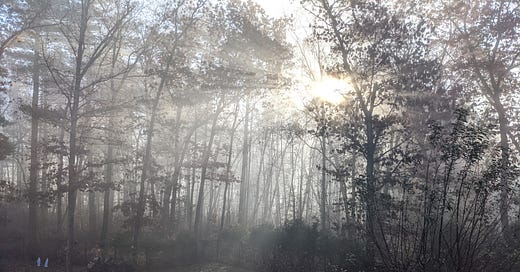


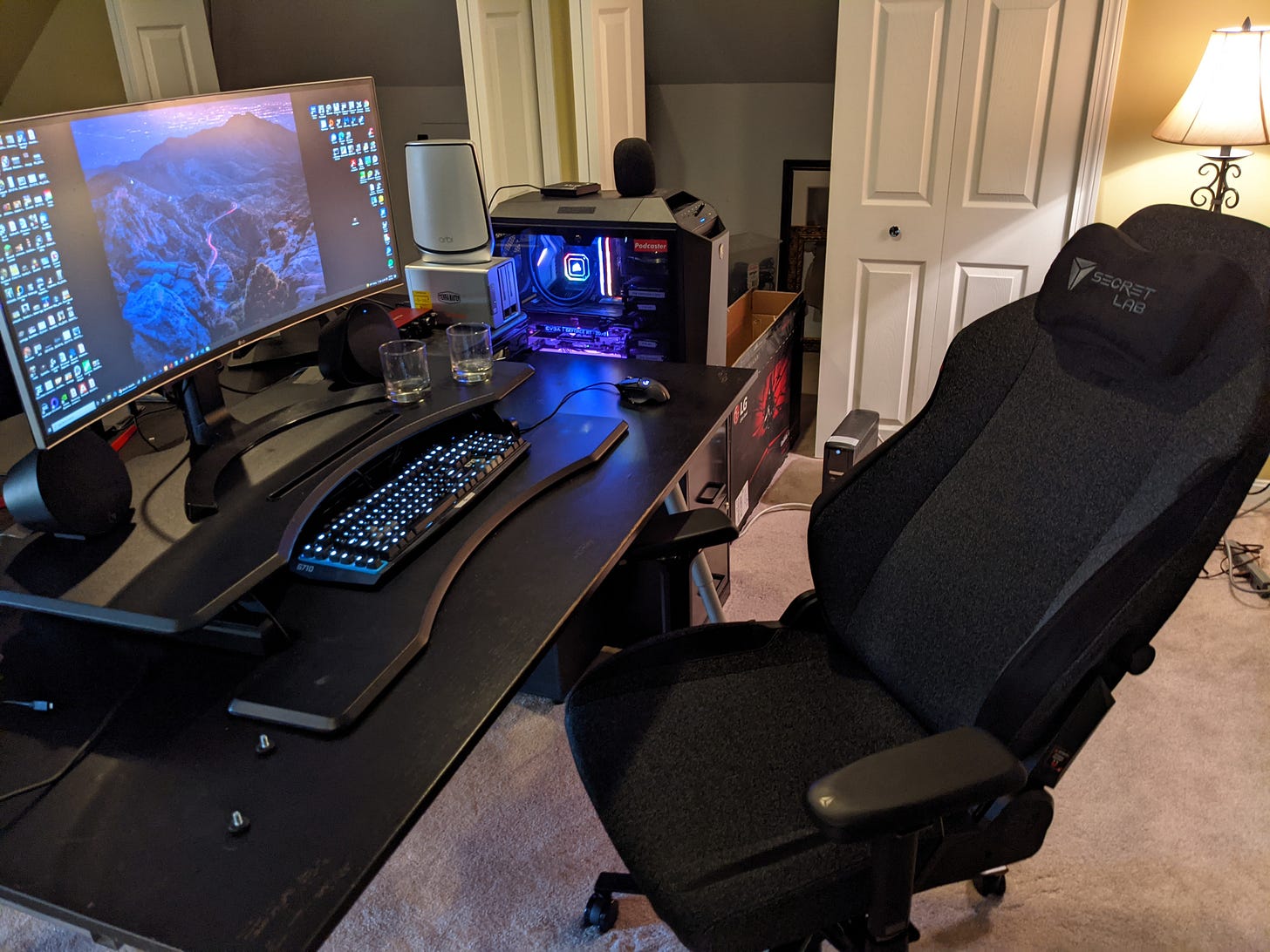



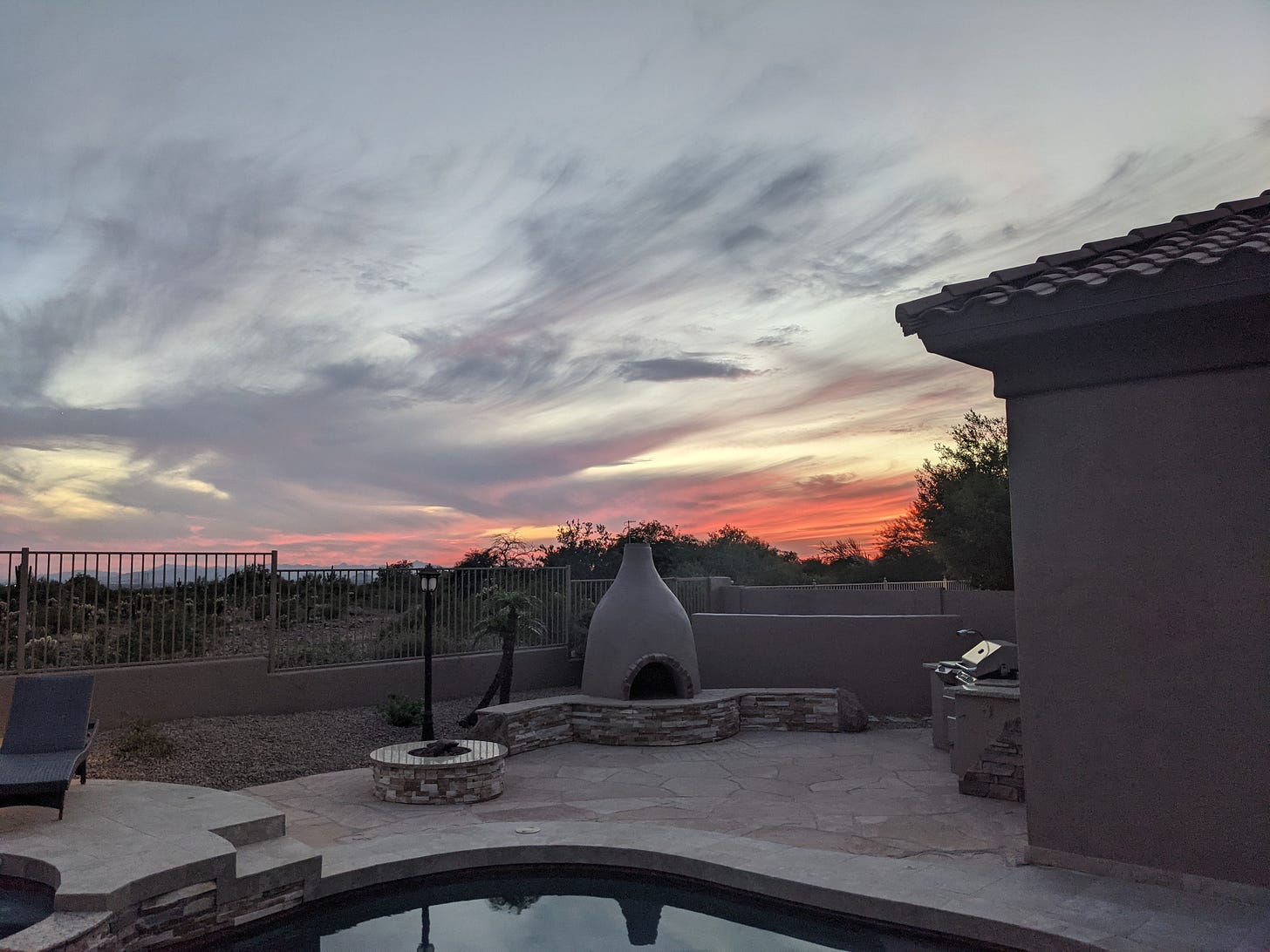







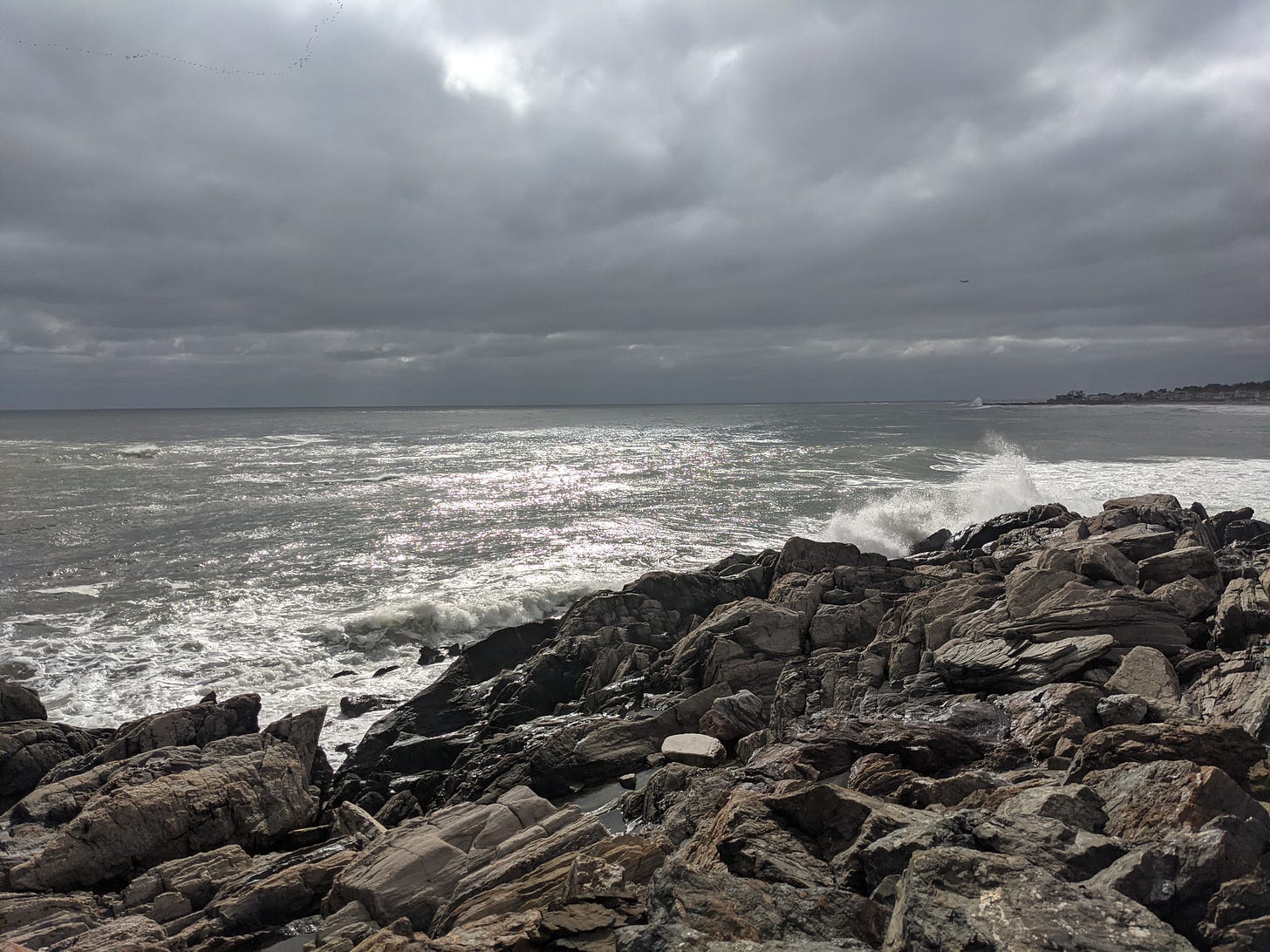

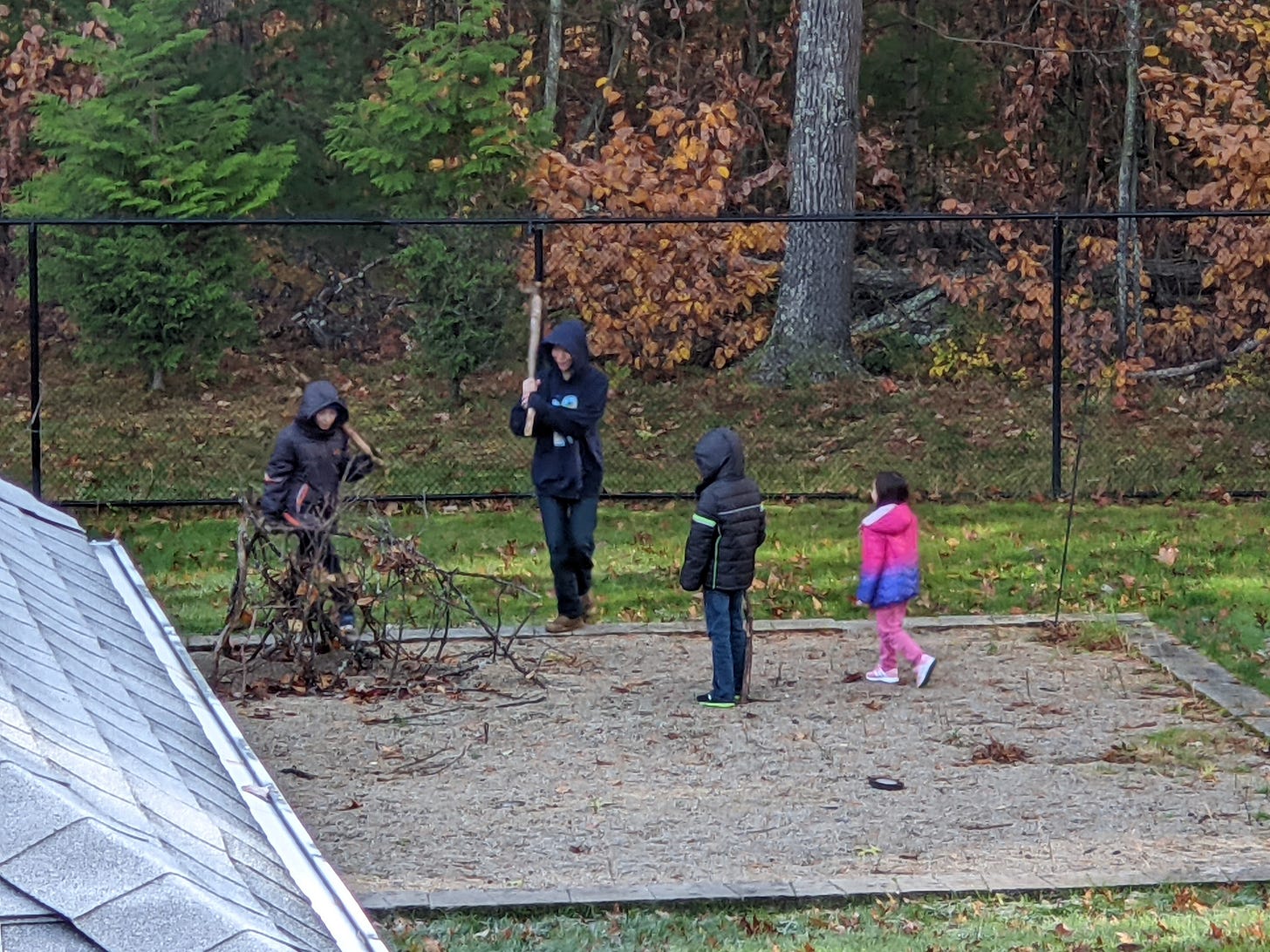
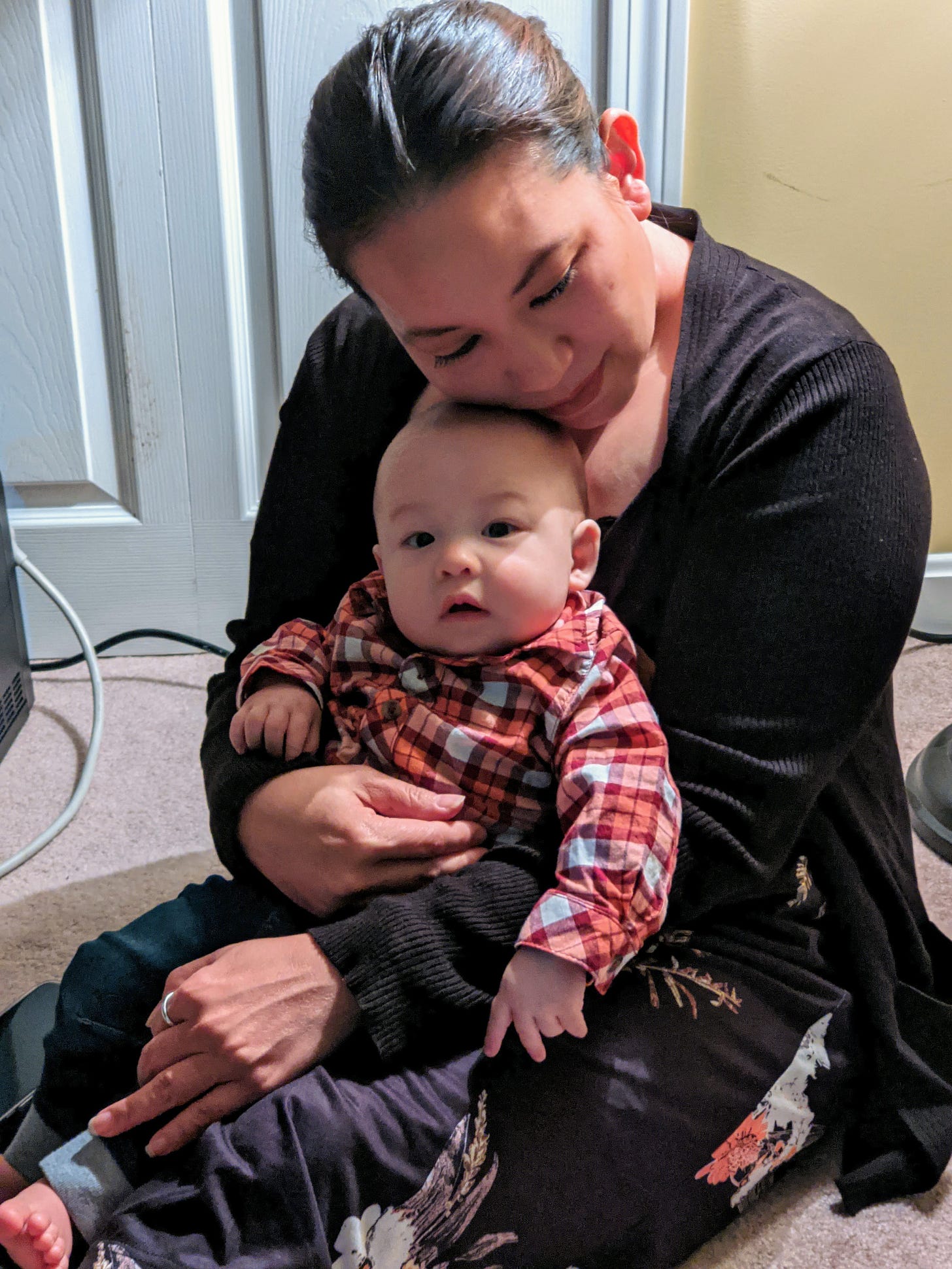


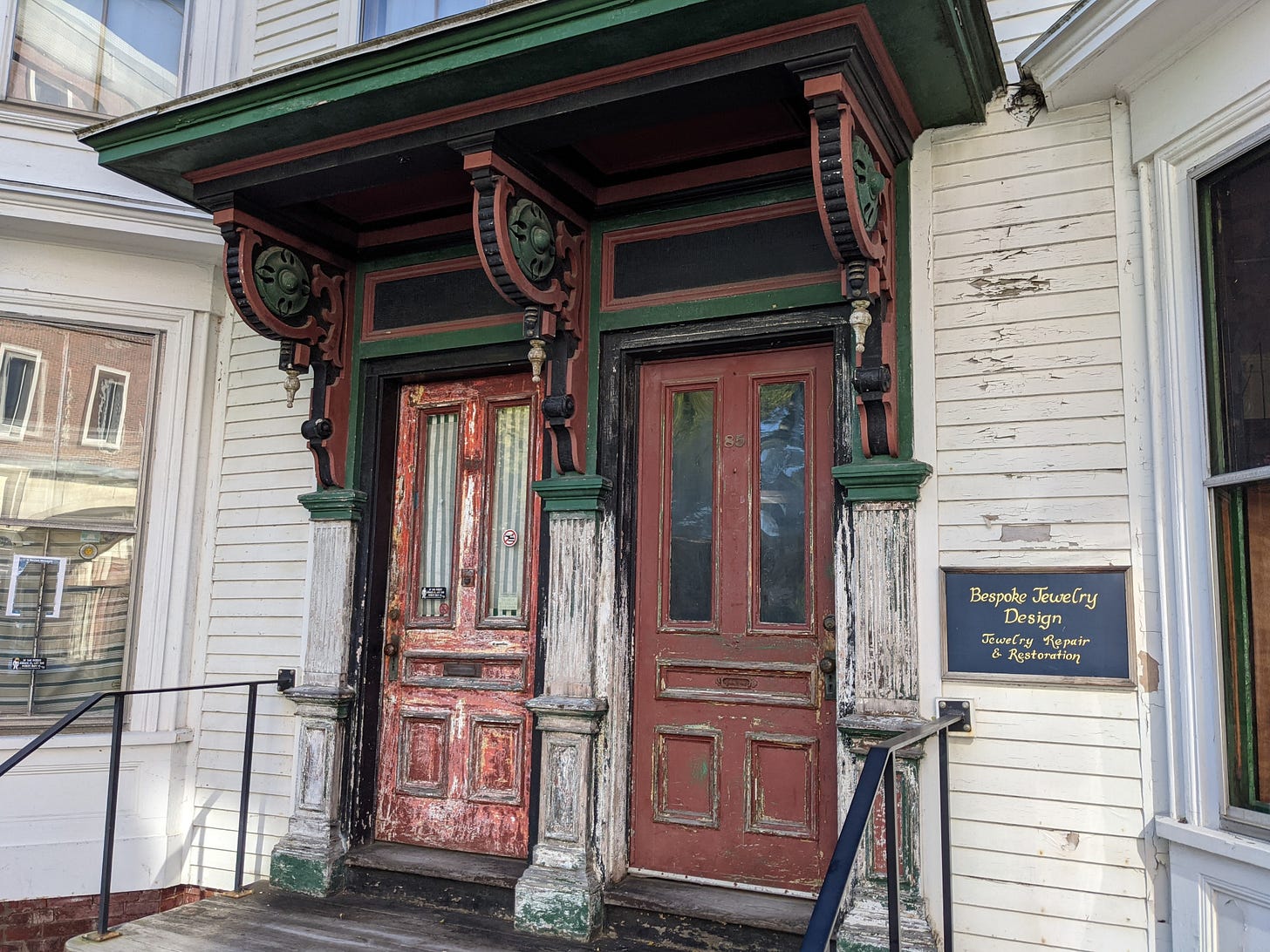
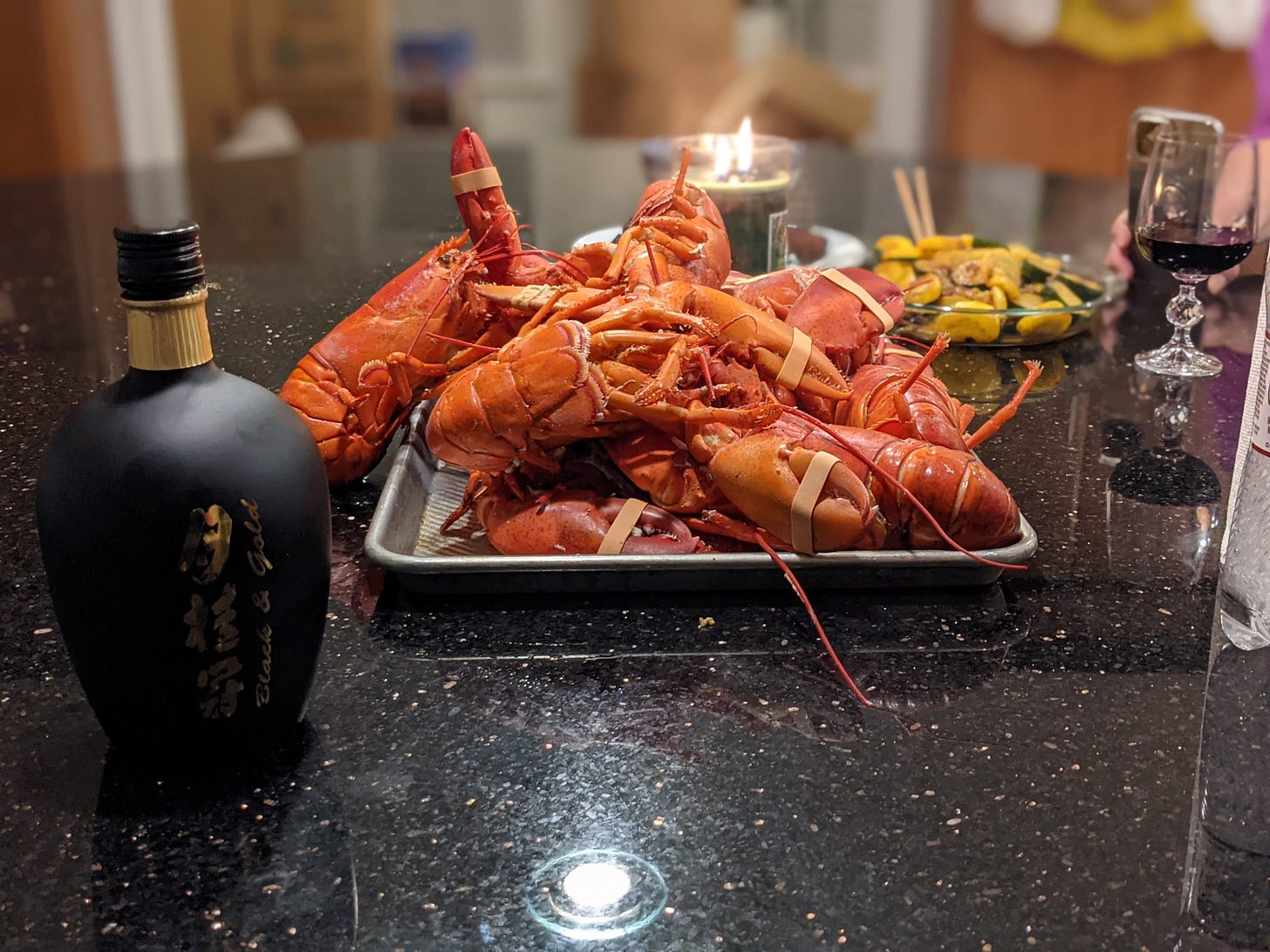
I was worried about you. Glad to see you back, and in such good shape!
“The ocean is a funny thing. It’s the same everywhere, which makes it feel like home no matter where you are in when you run into it. Sure, the shade of blue changes a bit, as does the kind of sand you find along its edges, but the sound and the smell and the feel of the thing is as constant as the stars, the rhythm of the surf reassuring like the beating pulse of the planet we all call home. In a way, it reminds me of God as much as anything does, larger than comprehension, roaring with power but silent and aloof, always calling to you in subtle tones but never bothering to explain why. You just sit and stare at it as it takes you away from yourself and makes you feel small. It’s a symbiotic relationship, I think, and one I’m not sure I can live without.”
Nice to see your return, Mr. Skojec. I enjoy and appreciate your writing and sharing. Much of what you write about, including the “far-out” stuff like UFOs, especially your spiritual journey, appreciation of bourbon, or whiskey more broadly (I’m an aficionado myself), resonates with me. At least the version of your presentation that is a healthy remove (to my mind; not passing judgment) from the TLM crowd and realm.
The “ocean” sentiment you expressed reminded me of two things. First, the notion that C.S. Lewis frequently referenced: sehnsucht. A kind of longing or yearning for the numinous, even homesickness for the same. I feel this myself often. I’m God-haunted. Second, the power of nature to point to the Divine. My fave author is Mark Helprin. His thinking, writing, immense talent, wisdom, looms large on my own outlook and perspective on life. I’ve included a link to an essay by him that speaks to me, if you are interested. I hope you don’t mind me sharing. It highlights, among other insights, the potent, if mysterious, language of nature. While I heartily agree nature often points to God, imbued, as it were, with the Transcendentals, I’m also not blind to its horrifying, terrifying aspects, the mysterium tremendum et fascinans. Indeed, some of what nature displays is so antithetical to what I believe is God’s nature, namely Love, that to reconcile my belief with some of what I know of nature, I can only hope, cross my fingers, even, that the brutal manifestations are a result of our fallen world. As you described, I, too, at times, have a felt sense of God as “silent and aloof.” I’m not naive. I’m not a wuss. I’m not a prude. I only say this to illustrate how I, too, feel the contradictions in life. I’m actually very conservative, generally speaking, i.e., politically (more paleo), socially, fiscally, etc. Like you, although on different terms, my challenge is on the spiritual front. Not belief; rather, the frequently myopic and harsh side reflected in so much religion. This doesn’t make me squishy, at least as far as I’m concerned. I despise the “anything goes” liberal variety of religion. The Judeo-Christian context and Western civilization are my home and conviction. The woke replacement religion, e.g., the diabolical anti-sacrament of abortion, the alphabet people madness, etc., to my way of thinking, is anathema, and I strongly resist it in all forms. (However, I’m constitutionally unable to abide the “Benedict Option.” It just seems nutty and ultimately dangerous. I’m also too inclined to certain secular pleasures.) In spite of God’s redemptive and healing promises - which I believe! - His revelation in Christ, I still struggle. Not so much with faith, per se, but with much of what is associated with God, especially the Church (I’m Catholic, ecumenical in many ways, and would describe myself in some ways as a “Barron-type” believer), and even within the broader spectrum of small-o orthodoxy with which I’m largely simpatico. Yet, I can and do easily find myself drawn to “heterodox” views, e.g., apocatastasis. At least the Orthodox, whose theology and spirituality I greatly respect and admire, largely allow for greater latitude in this regard. All this to say that I “get” the struggle. Mine comes from other angles, but I understand.
https://www.firstthings.com/article/2017/03/falling-into-eternity
P.S. A third thing. Your entire post and use of liminality reminded me obliquely of the Celtic idea and experience of “thin places.”
P.S.S. Damn. Sorry. That was a rambling response by me. Just felt moved to share.